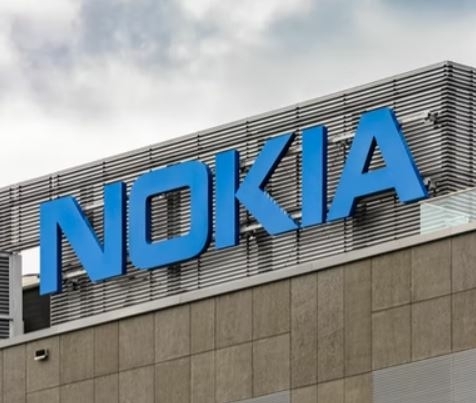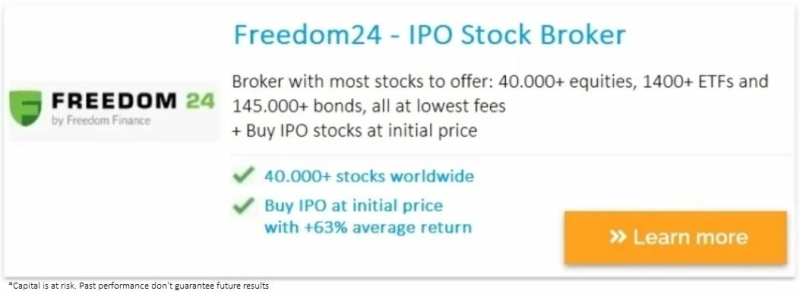Buy Nokia Shares? In this case, a good analysis of Nokia and its shares is needed! In this article we examine the company on strategy as well as risks and price expectations. We also share our insights on whether or not to buy Nokia shares. However, this should not be seen as stock advice, as this is a personal matter.
On to the full analysis of Nokia shares!
Stock Analysis: Nokia (NOKIA)

Nokia Corporation (NOKIA) is a Finnish multinational telecommunication, information technology, and consumer electronics company. It was founded in 1865 and is headquartered in Espoo, Finland. The company operates in four business segments: Networks, Global Services, Nokia Technologies, and Nokia Mobile Phones.
Nokia is a public limited company listed on the Helsinki Stock Exchange and New York Stock Exchange. It is the world's 415th-largest company measured by 2016 revenues according to the Fortune Global 500 and is a component of the Euro Stoxx 50 stock market index.
Nokia Corporation's stock price has been on a steady decline over the past five years, from a high of EUR 5.80 in December 2015 to a low of EUR 2.22 in December 2020. The stock has recovered somewhat in 2021 and is currently trading at EUR 3.17 as of May 2022.
The company's poor stock performance can be attributed to a number of factors, including intense competition in the global telecommunications market, declining sales of its mobile phones business, and a slowdown in the global economy.
A brief summary of our Nokia stock analysis is that the company currently has an acceptable financial valuation. With further earnings growth based on the renewed strategy, Nokia may offer Value over time. On the other hand, we are not convinced of the strategic qualities of this company, which operates in a market with intense competition.
At the moment, we do not consider Nokia shares to be among the potentially best shares we invest in. In the long run, it may well offer returns, but we foresee much better investments.
Strengths and Weaknesses of Nokia (NOKIA)

Buying Nokia shares has not exactly led to good results in recent years. The strong company has been overtaken by stronger competition in recent years. In the long term, this should change, and that movement seems to have to come from (new) management. If that does not happen, buying Nokia shares does not seem a favorable long-term investment.
Strengths
- Strong brand recognition and customer loyalty: Nokia is a well-known brand with a loyal customer base. The company's products are popular and have a good reputation.
- Diversified product portfolio: Nokia offers a wide range of products, from mobile phones to Internet services. This gives the company a competitive edge in terms of product diversity.
- Strong R&D capabilities: Nokia has strong research and development capabilities. This allows the company to develop new and innovative products that meet the needs of its customers.
- Extensive global reach: Nokia has a global presence, with operations in over 150 countries. This gives the company a significant competitive advantage in terms of market reach.
Weaknesses
- Poor management and execution of strategies: Nokia has been criticized for its poor management and execution of strategies. This has led to a decline in the company's market share and profitability.
- High levels of debt: Nokia has a high level of debt, which limits the company's financial flexibility.
- Low return on equity: Nokia has a low return on equity, which indicates that the company is not generating sufficient profits from its operations.
- Dependence on mobile operator partnerships: Nokia is heavily reliant on mobile operator partnerships for its revenue. This makes the company vulnerable to changes in the telecom industry.
Threats and Opportunities for Nokia (NOKIA)
From a macroeconomic level, Nokia faces some threats. On the other hand, there are always opportunities to take advantage of. A new strategy is necessary for Nokia shares to grow in the long run, as a driver for more profits.
Opportunities
- Nokia's primary opportunities for growth lie in the development and expansion of its Networks and HERE Maps & Location Intelligence businesses. The company's Networks business is focused on providing mobile broadband services to customers around the world.
- In addition, Nokia is looking to expand its reach into new markets with the HERE Maps & Location Intelligence business. The company has also made significant investments in research and development, which will allow it to bring new products and services to market.
Threaths
- Nokia's primary threats come from regulation, competition and macroeconomic conditions. In terms of regulation, the European Union has been investigating the company's tax practices in recent years. This could lead to Nokia owing a significant amount of money in back taxes, which would negatively impact its financial performance.
- Competition is also a major threat to Nokia, as it faces stiff competition from other companies in the telecommunications industry, such as Ericsson and Huawei. Finally, macroeconomic conditions could also have a negative impact on Nokia's business, as a slowdown in economic growth could lead to lower demand for its products and services.
Risks analysis of Nokia (NOKIA)
Nokia is exposed to a number of risks that could have a negative impact on the company's business and financial performance. These risks include:
- Competition from other mobile phone manufacturers
Nokia faces intense competition from other mobile phone manufacturers, such as Apple, Samsung, and Huawei. These companies have been able to gain market share by releasing innovative products that appeal to consumers. Nokia must continually invest in research and development in order to stay ahead of the competition and maintain its market share.
- Economic difficulties in some operating countries
Nokia's business is subject to fluctuations in global economic conditions. The company operates in many countries around the world, and economic difficulties in any of these markets could have a negative impact on Nokia's business. For example, the European Union is a significant market for Nokia, and the ongoing debt crisis in the Eurozone has adversely affected demand for the company's products and services.
- Dependence on key suppliers
Nokia is dependent on a number of key suppliers for components and materials used in its products. If these suppliers are unable to meet Nokia's demand, or if they experience financial difficulties, it could have a negative impact on Nokia's business.
- Fluctuations in exchange rates
Nokia's business is subject to fluctuations in currency exchange rates. The majority of Nokia's revenue is generated in Euros, but the company also has significant operations in other currencies, such as the United States Dollar and the Chinese Yuan. Changes in currency exchange rates can impact the company's revenue and profitability.
- Changes in technology standards
Nokia's products and services are subject to changes in technology standards. The company must continually invest in research and development in order to stay ahead of the competition and maintain its market share.
- Access to spectrum for wireless communications services
Nokia requires access to spectrum in order to provide wireless communications services. Spectrum is a scarce resource, and the allocation of spectrum is controlled by government regulators. If Nokia is unable to obtain the necessary spectrum licenses, it could have a negative impact on the company's business.
- Patent litigation
Nokia is involved in a number of patent litigation cases. These cases are costly and time-consuming, and they could have a negative impact on the company's financial performance.
- Regulatory changes
The telecommunications industry is subject to stringent regulation by government authorities. Changes in regulation could have a negative impact on Nokia's business.
Price Target of Nokia (NOKIA)
Nokia Corporation (NYSE: NOK) has a current price target of $6.50, set by investment bank Goldman Sachs.
Other banks have set the following price targets for Nokia:
- UBS has a price target of $5.60
- Deutsche Bank has a price target of $6.20
- Citigroup has a price target of $6.00
According to Goldman Sachs, the main reasons for their price target are as follows: "We believe that 5G will be a key driver of growth for Nokia over the next few years. In addition, we expect the company to benefit from its recent cost-cutting initiatives." They also added that they see "significant upside potential" for the stock.
Similarly, UBS stated that they see 5G as a key growth driver for Nokia and that the company is well-positioned to benefit from the rollout of 5G networks around the world. They also believe that Nokia's cost-cutting initiatives will start to bear fruit in the coming quarters.
Deutsche Bank also sees 5G as a major growth driver for Nokia and believes that the company is one of the best positioned players in the telecom equipment industry to benefit from this trend. They are also positive on Nokia's cost-cutting efforts and believe that these will start to show results in the near term.
Citigroup echoed these sentiments and stated that they believe Nokia is "well-positioned to benefit" from the rollout of 5G networks globally. They are also positive on the company's cost-cutting efforts and believe that these will start to show results in the coming quarters.
Conclusion: to buy Nokia or not?
To buy Nokia stock or not is a personal matter. The financial valuation seems favorable, although it can always be better. The price expectations from banks are considerably higher than the current price quotation. Yet we ourselves are less enthusiastic about buying Nokia shares. The company is no longer the strong organization it was. From a strategic point of view, we see risks and threats that could depress long-term profitability.
It is not that we consider Nokia stock a bad investment. Rather, we simply see better investments at this time.
It is important to choose the best investment platforms. They offer a wide range of stocks and ETFs so that you can build a good portfolio. They also have low transaction costs. Some even offer commission-free investing. In the long run, this saves a lot of costs.

![Nokia (NOKIA) Shares Analysis: Price Target, Risks, Strategy [2022]](https://media-01.imu.nl/storage/thehappyinvestors.com/4861/nokia-stock-analysis-2560x1100.png)



![Buy Stock Mercadolibre or Not? Analysis [2022] Happy Investors](https://media-01.imu.nl/storage/thehappyinvestors.com/4861/responsive/6843525/mercadolibre-stock-buy-or-not-2560x1100_878_377.png)
![Buy Palantir Stock or Not? Advice [2022] Happy Investors](https://media-01.imu.nl/storage/thehappyinvestors.com/4861/responsive/6791848/buy-palantir-stock-or-not-2560x1100_878_377.png)

![TUI (TUI1) Stock Analysis: Price Target, Risks, Strategy [2022]](https://media-01.imu.nl/storage/thehappyinvestors.com/4861/responsive/6689941/tui-stock-analysis-2560x1100_614_264.png)
